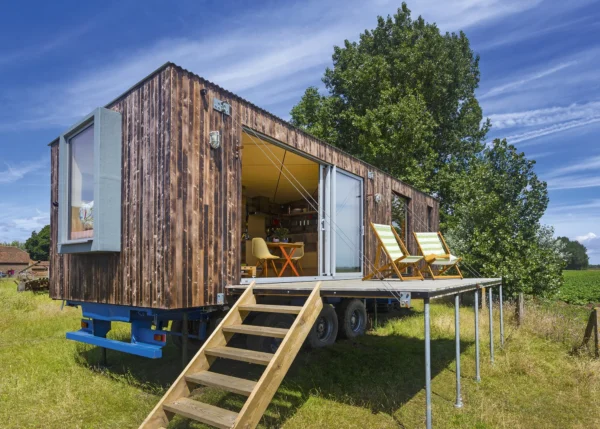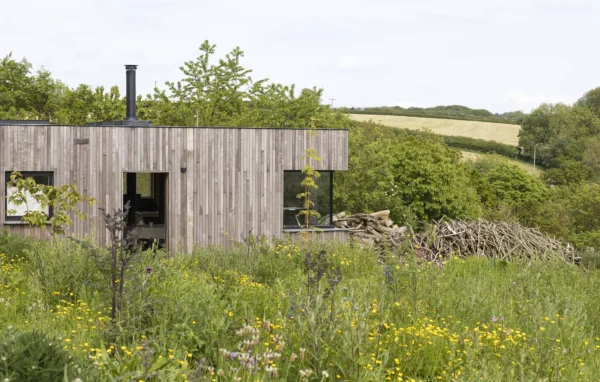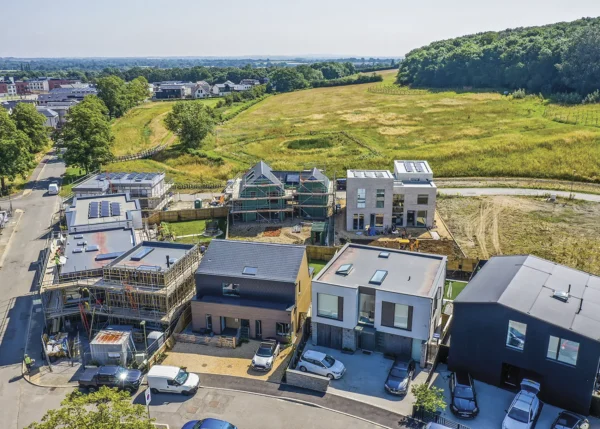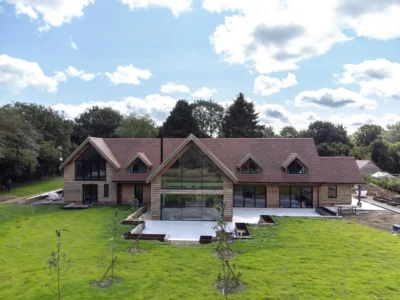Buying Plots & Property: Options vs Conditional Contracts
Whether you’re buying a plot, a property for conversion or a house that needs substantial renovation or an extension, it’s important to know that you’ll be able to do what you want with the property before you commit to the purchase.
Often the main area of uncertainty is whether planning permission will be granted, or if an existing consent can be amended. But any number of other issues might be at play – such as a legal question or something practical that could impede or add cost to your build.
In situations like this, a desirable way forward is to secure the right to buy the property while only being bound to proceed if the issues are resolved to your satisfaction. Options (also known as option contracts) and conditional contracts are the mechanisms most commonly used to deal with such scenarios. So what are they and how can they be used effectively?
Option contracts
An option grants you the exclusive right to buy a property for a pre-defined period of time. The agreement would generally specify the length of the period, what needs to be done (such as obtain planning permission) and the price to be paid or a mechanism for calculating it.
If a pricing mechanism is to be used, this will usually be in the form of a percentage of open market value, with the percentage reflecting the amount of work and money you have to put in to get consent. You might pay a relatively small amount to secure an option, and the agreement should include provisions in case of disputes.
An advantage of this route over the alternative of using a conditional contract is that you don’t have to proceed with the purchase if you decide you don’t want to. You simply have the option to do so, as the name suggests.
When to use an option
With most plots and conversions being sold on the market, the offer of an option is unlikely to be accepted by a vendor – unless it involves the promise of a sufficiently high price to induce the seller to wait for it.
An example of where that might be the case is if you think you could get consent for a larger house than is currently permitted, or perhaps several units as opposed to one house.
For many self builders, options come into their own where the land or property isn’t already on the market. So perhaps you’ve spotted an opportunity and approach an owner directly, but there’s not yet any planning permission in place.
The option buys you the time to get consent and sort out any other issues that could prevent your build, without fear of being gazumped (that unhappy situation where, prior to contracts being exchanged, someone puts in a higher offer than yours and the vendor accepts it).
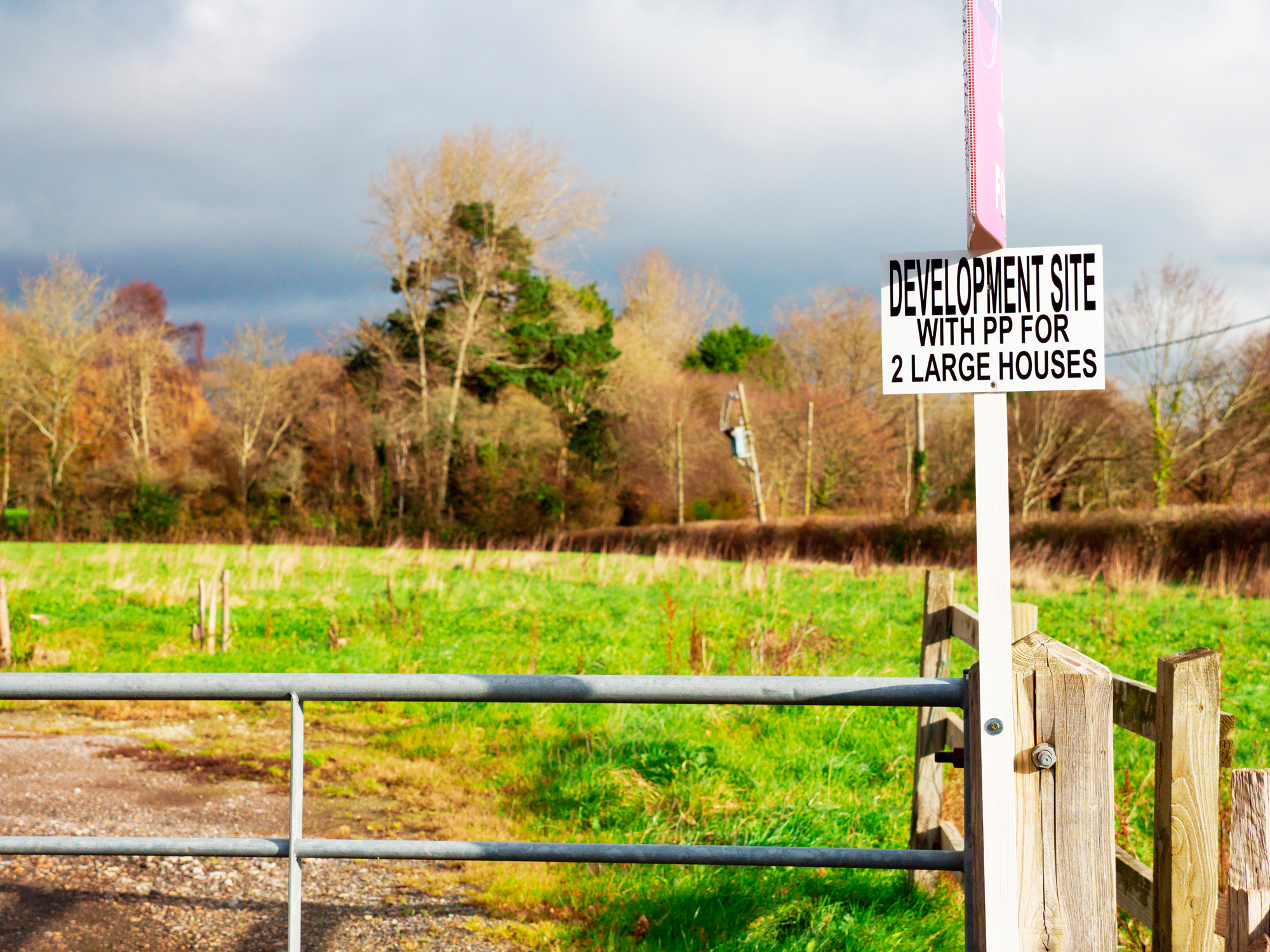
A beautiful plot’s planning permission is tied to the neighbouring site. A conditional or option contract could protect the self builder from getting gazumped if a developer popped up willing to buy the plots together.
How much you pay for an option, and how you calculate the price of the site, are matters for you and the vendor to negotiate. Any sum paid for the option will in effect be a non-returnable deposit should the sale fall through.
From the seller’s point of view, the more you pay them upfront the more attractive your proposal is likely to appear.
But for the self builder, a great deal depends on the amount of risk involved in realising the project. So the greater your certainty that you’ll achieve what you want, the more you might be willing to pay for the option. That said, it’s not at all uncommon for options to be signed on the basis of a token £1 payment.
Both the upfront sum and the costs involved in getting permission or resolving other issues should be reflected in the price you agree you’ll pay should you decide to exercise your option to buy. This might be in the area of 70% to 85% of open market value.
When you’re contemplating using an option to buy, take advice from a solicitor who has experience of these things. These agreements need to be carefully worded, and it’s not always obvious whether an option or a conditional contract is the best way forward.
Conditional contracts
This is simply a contract to buy that has a condition (or several conditions) written into it, requiring something to happen before the contract completes. This enables you to agree to buy and what price you’ll pay for the property, but secures you time between exchange and completion to sort out any issues that need resolving.
Whilst they’re apparently straightforward, these contracts need careful drafting by an experienced solicitor. For example, if the proviso is that you secure detailed planning permission for the house you want on a plot that currently has outline consent, you’ll need to cater for what happens if there’s a refusal and perhaps an appeal, or awkward planning conditions are imposed that make the project less attractive to you.
Bear in mind that planning consent is sometimes granted subject to you entering into a legal agreement with the local authority that requires you to pay them some money (eg a Section 106 contribution). Again, this possibility should be factored in.
When to use a conditional contract
Conditional contracts can be used where there’s no current planning permission; there’s an outline permission but you want to get detailed consent in place before committing to buy; or where you want to change an existing detailed permission to better suit your needs.
Alternatively, there could be legal matters to resolve, such as securing a right of way or overcoming a restrictive covenant.
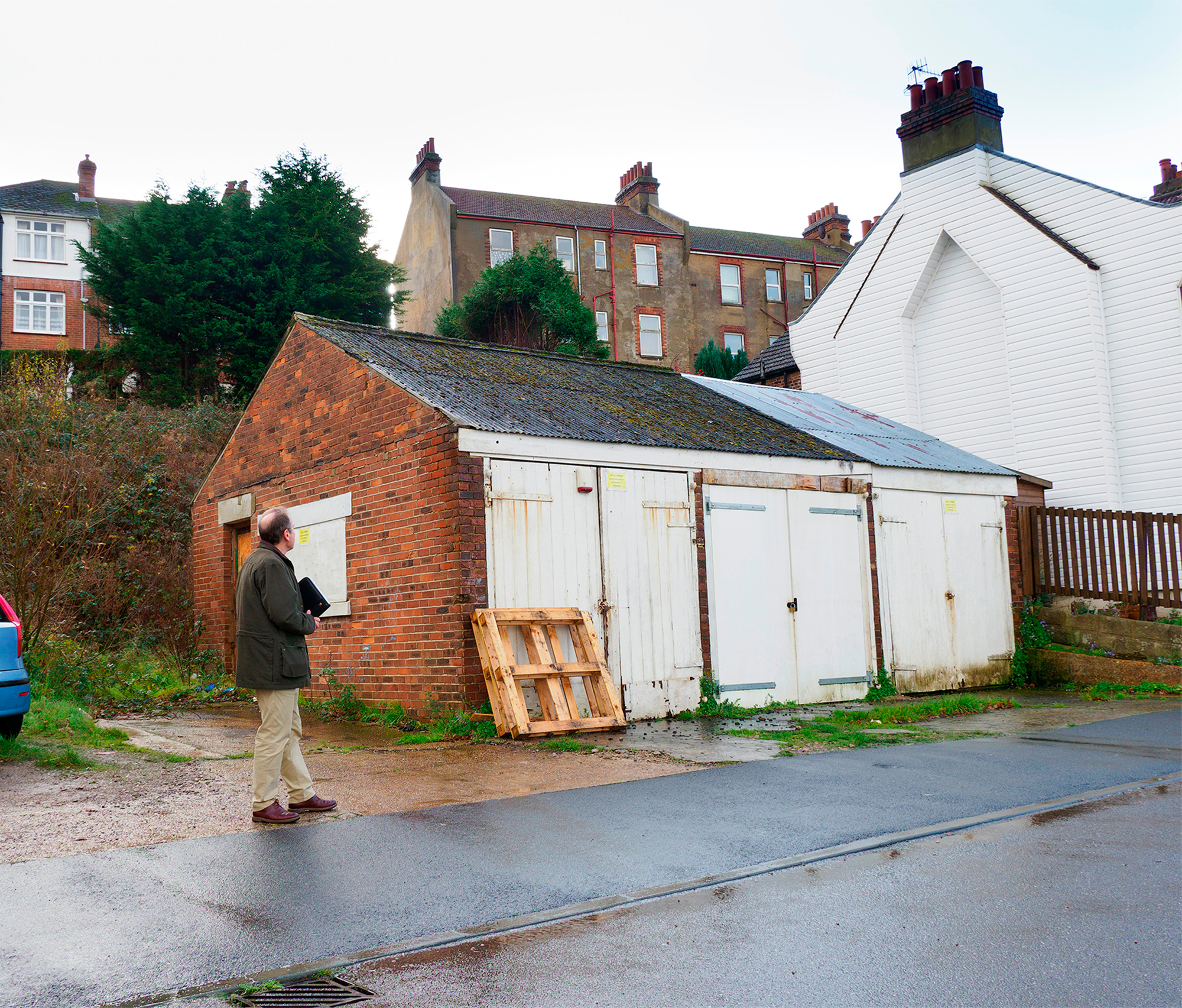
This site comes with outline planning permission, and gaining detailed consent for a good-sized home should be straightforward given the variety of surrounding architecture and existing garages on site. As such, the vendor is unlikely to consider a conditional contract
Practical factors such as improving sight lines, resolving a satisfactory means of drainage or dealing with contamination, for example, could also be covered.
The contract is likely to include a cut-off date, so make sure this allows you adequate time to resolve the issues concerned.
For instance, a planning application can be delayed at the initial validation stage, go over the normal eight-week period for determination, and then be granted subject to conditions, which themselves need negotiation with the council and a further eight week delay.
Six months would be the minimum period I’d suggest for securing permission. If the vendor won’t grant you sufficient time, then don’t enter into the contract.
The last thing you want is to be obliged to buy before you’re satisfied you can build what you want.
PlotBrowser.com – the quickest route to finding a genuine building plotThe latest addition to Build It’s series of powerful project tools, PlotBrowser.com is your dedicated self build land resource. You’ll find 1,000s of plots and properties to view nationwide, all with outline or full planning permission in place – including the council planning reference so you can understand whether the plot can support the kind of house you’d like to create. |




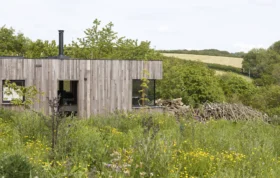

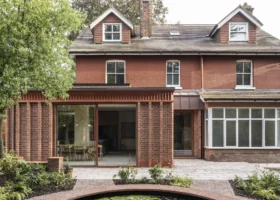
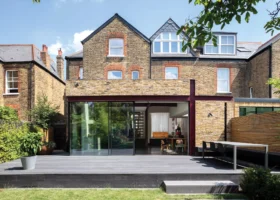




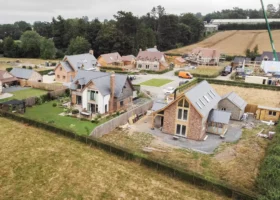





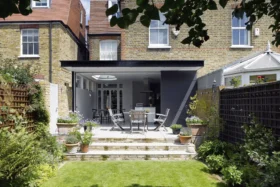


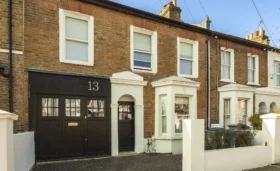












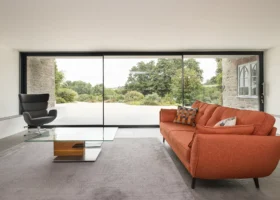



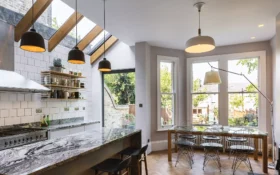






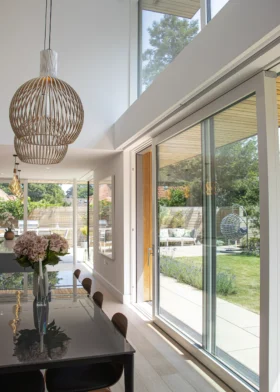
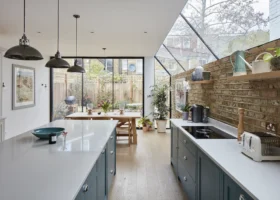

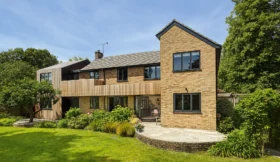




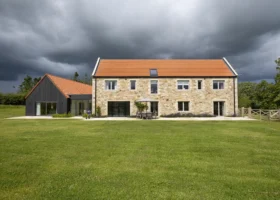




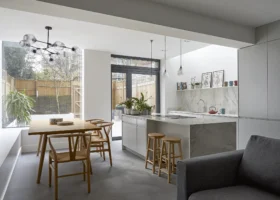

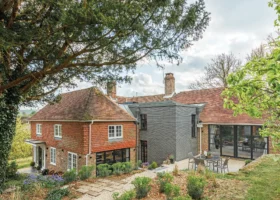
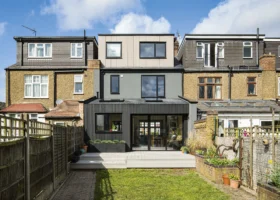
























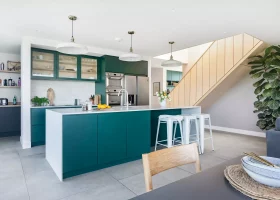









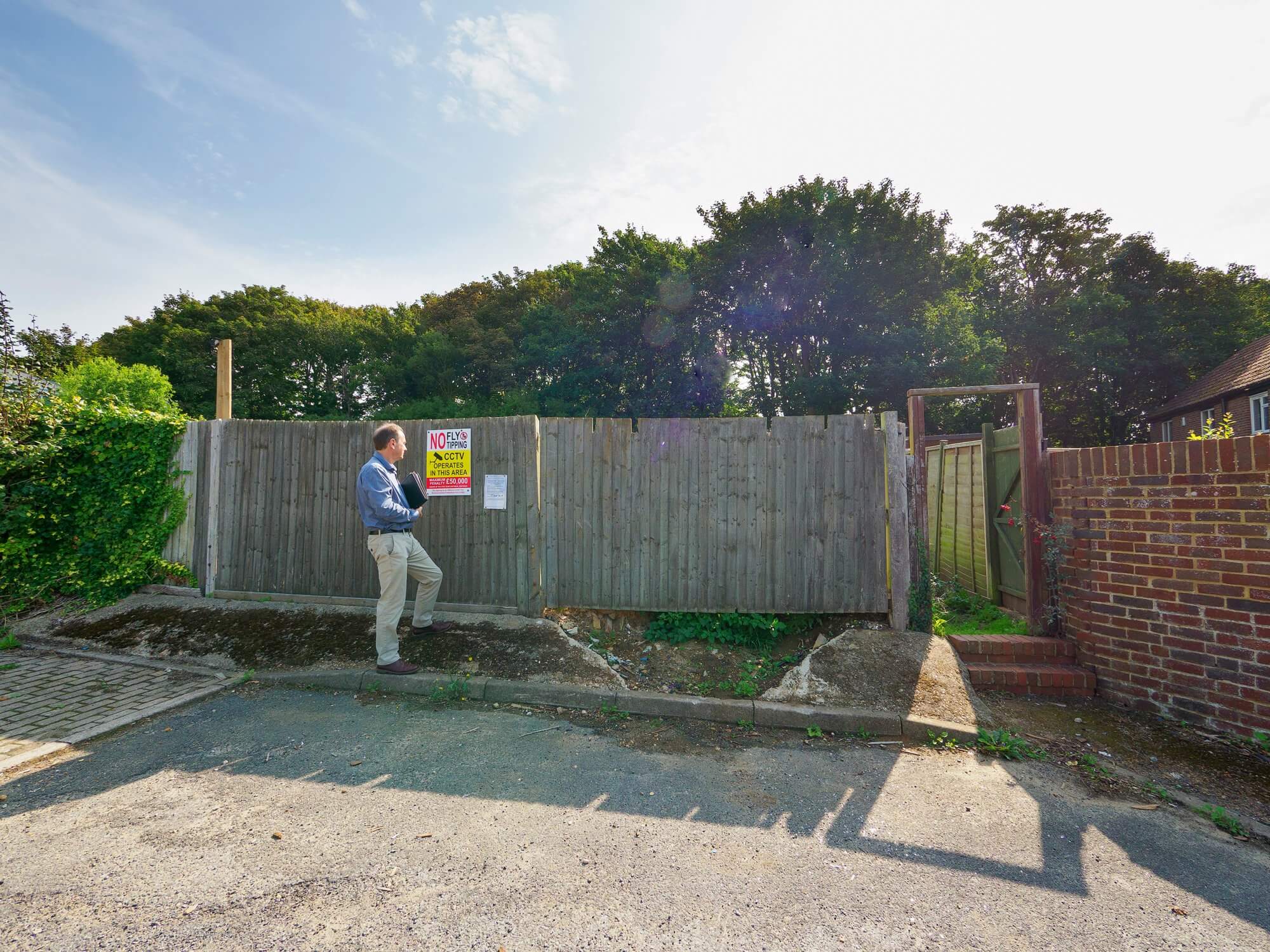
 Login/register to save Article for later
Login/register to save Article for later


